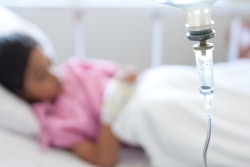NEW YORK (Reuters Health), Mar 6 - In a brief report, Australian researchers describe three patients who had epileptic seizures induced by toothbrushing. In all three cases, small lesions were identified in the primary somatosensory cortex, a brain region close to the hand and speech motor areas.
"The rhythmic act of brushing teeth may excite an already overly excitable area of the brain," lead author Dr. Wendyl D'Souza, from the University of Melbourne in Australia, said in a statement. "This is similar to photosensitive epilepsy, which involves seizures triggered by flashing lights and moving patterns."
The seizures experienced by the patients were characterized by sensory changes and facial deficits, jerking of the head, tightening of the jaw, vigorous salivation, and, in one case, an inability to let go of the toothbrush during the seizure.
MRI evaluation revealed small, circumscribed lesions in the primary somatosensory area in all three patients, the investigators report in the March 6th issue of Neurology.
The seizures resolved with medications in one patient, surgery in another, and were still apparent in the third despite medical therapy, the researchers report.
Based on the data from these cases and other evidence, Dr. D'Souza's group suggests that "toothbrushing-induced seizures should be reclassified as simple rather than complex reflex epilepsy."
Copyright © 2007 Reuters Limited. All rights reserved. Republication or redistribution of Reuters content, including by framing or similar means, is expressly prohibited without the prior written consent of Reuters. Reuters shall not be liable for any errors or delays in the content, or for any actions taken in reliance thereon. Reuters and the Reuters sphere logo are registered trademarks and trademarks of the Reuters group of companies around the world.



















